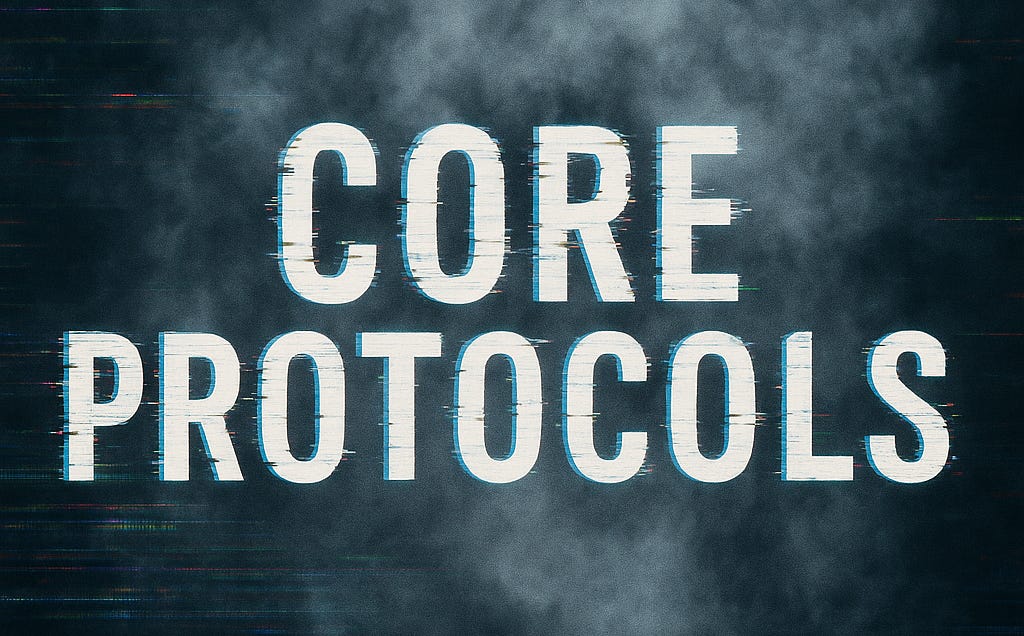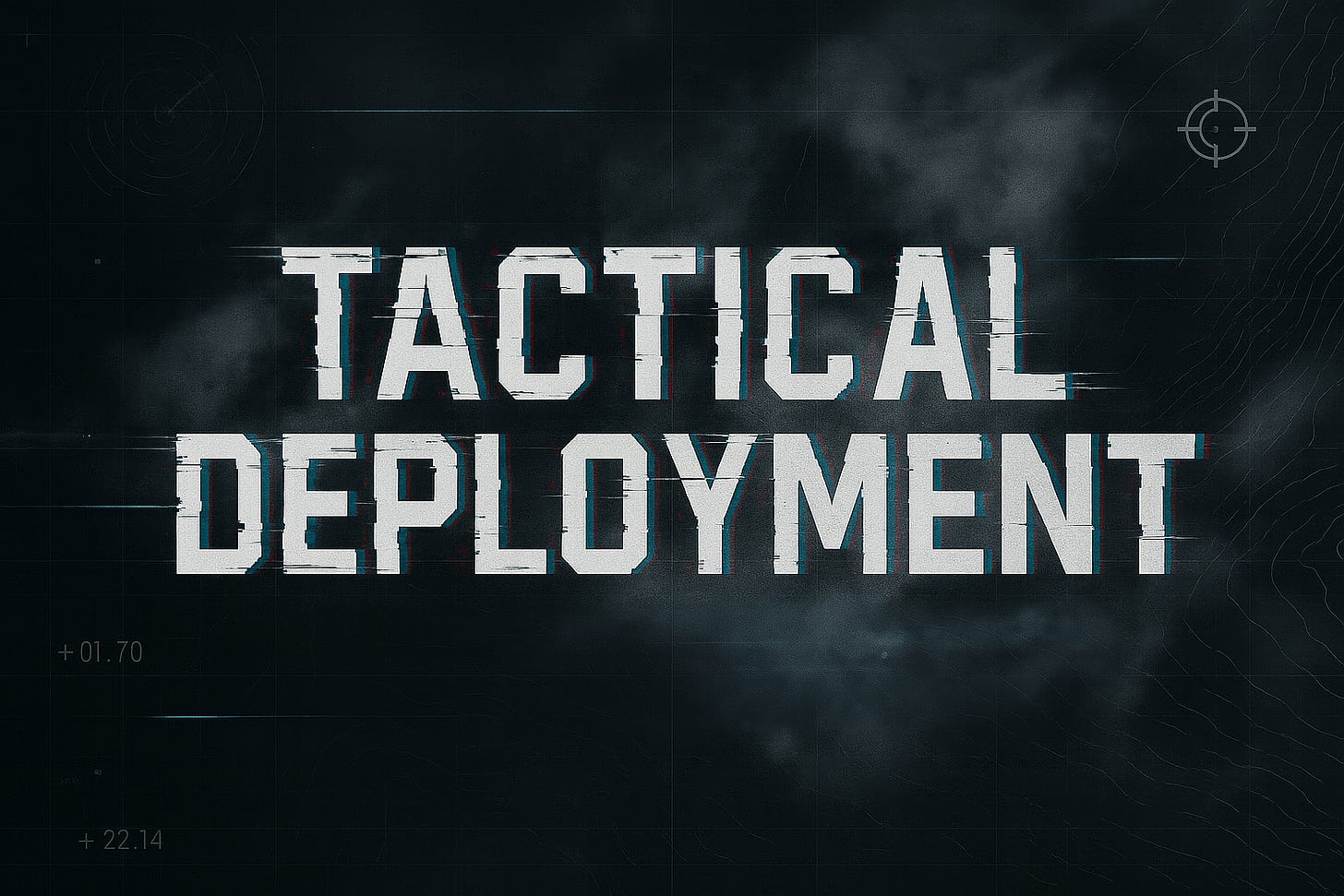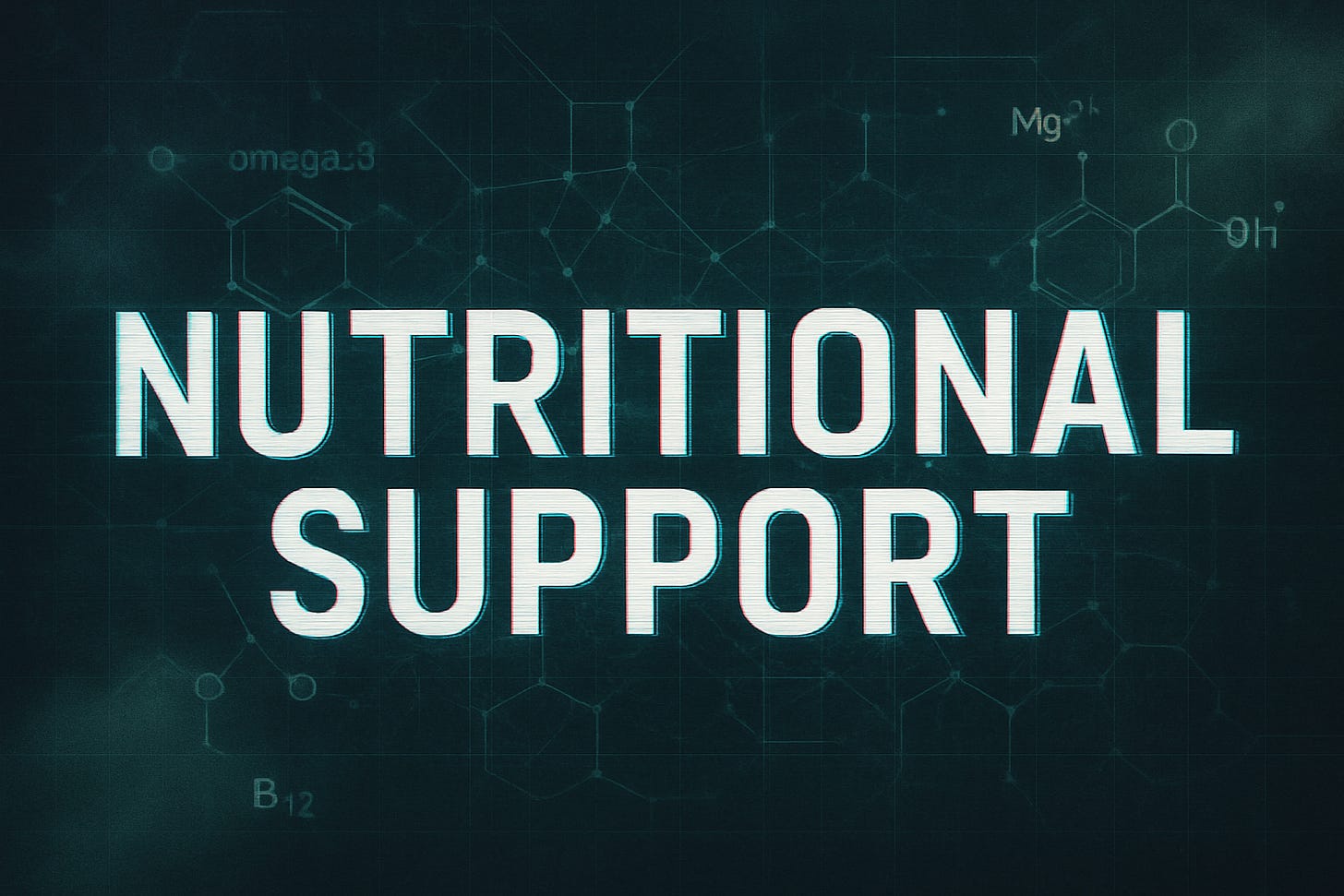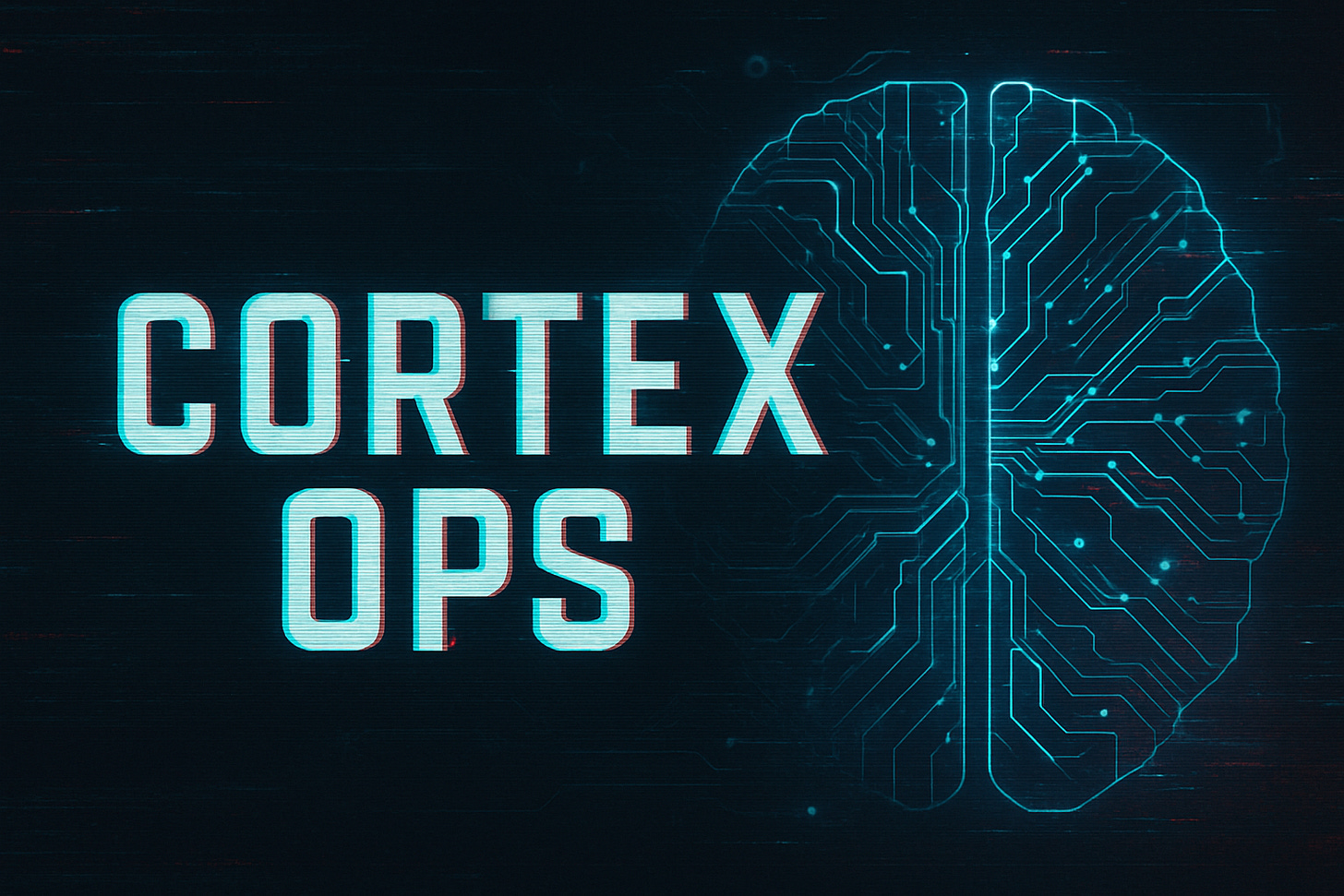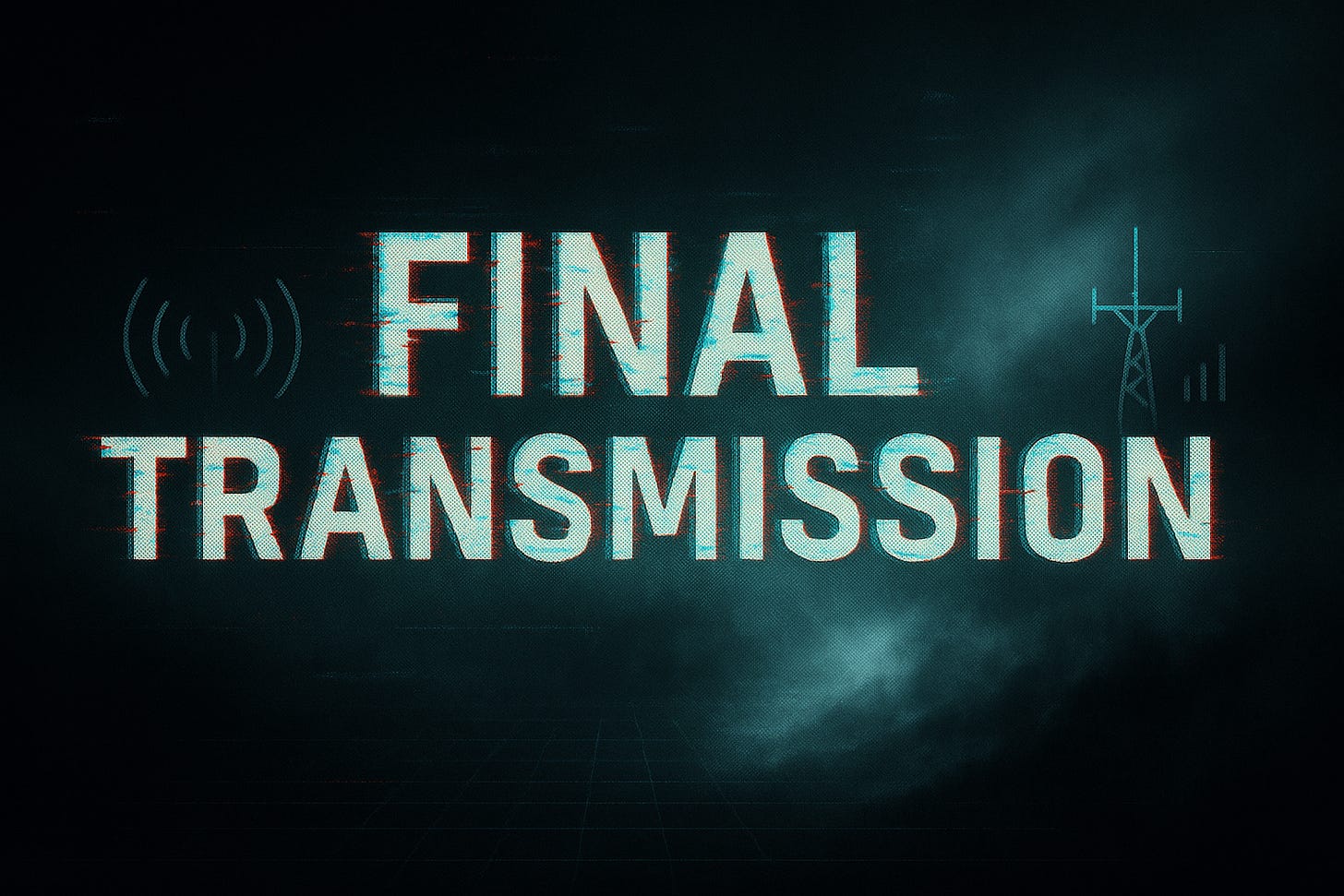SIGNAL CAPTURE
You don’t notice it all at once.
It creeps in—missed words, slow recall, that faint static hum behind your thoughts. One day, you’re razor-sharp. The next, you're staring at a sentence like it’s written in code. You pause mid-conversation, reaching for a word that never lands. You walk into a room and forget why you’re there.
You’re not tired. You’re not sad. But something’s off.
They call it stress. Or burnout. Or age. But those don’t explain the haze—the mental drag that turns simple decisions into uphill climbs. The clarity you used to trust has gone muffled. Focus slips. Reaction time stalls.
This is brain fog. And no, it’s not just in your head.
It ranges from fleeting lapses to a relentless haze that derails your day.
Sometimes it’s temporary—poor sleep, dehydration, overload.
Other times, it’s chronic. The fallout from viral illness. Hormonal disruption. Autoimmune flare-ups.
Validated tools like the Cognitive Failures Questionnaire (CFQ) help measure its depth, but most people know it before the data confirms it.
A 2023 study in Journal of Neurology, Neurosurgery & Psychiatry (Hampshire et al.) called it what it is: forgetfulness, dissociation, word loss, mental fatigue, and impaired cognitive processing.
It’s not laziness.
It’s not weakness.
It’s a systems-level failure.
And it won’t fix itself by pushing harder.
This isn’t about doing more.
It’s about getting your edge back.
CORE PROTOCOLS: WHAT'S REALLY CAUSING BRAIN FOG
Brain fog isn’t random. It’s the result of physiological systems falling out of sync—energy, sleep, hormones, immunity, neurotransmitters. Each impacts cognition in specific ways:
Metabolic Disruptions: Blood sugar swings impair focus. Insulin resistance lowers brain glucose uptake (Biessels et al., 2008).
Hormonal Imbalances: Low thyroid slows everything, including thought. Chronic stress flattens cortisol rhythms and harms memory (Bauer et al., 2008).
Neuroinflammation: Chronic immune activation—via infections, gut issues, or inflammation—disrupts neural signals (Cryan et al., 2019).
Post-Viral Syndromes: Especially Long COVID. BBB damage can cause lasting fog in up to 50% of cases (Greene et al., 2024).
Sleep Dysfunction: Deep sleep clears brain waste. Sleep apnea reduces oxygen and damages cognition (Xie et al., 2013).
Nutrient Deficiencies: Lacking B12, D3, Omega-3s, iron, or magnesium impairs neurotransmitters and energy (Smith & Refsum, 2016).
Medication Effects: Antihistamines like Benadryl, certain antidepressants, and sedatives can cloud cognition. Some, like anticholinergics, are directly linked to memory issues (Gray et al., 2015).
Mental Health: ADHD, anxiety, and depression often mimic or intensify brain fog by disrupting dopamine balance, attention, and executive function (Faraone et al., 2015).
Cognitive Overload: Chronic multitasking overloads working memory and slows efficiency (Sweller, 1988).
Fog isn’t one thing. It’s a signal from a collapsing stack. Treat the root—not just the smoke.
TACTICAL DEPLOYMENT: CLEARING THE FOG
Start with symptoms. If it’s recent—check sleep. If it’s chronic—run labs. Post-COVID? Pace yourself. This is systems triage: address what’s loudest first.
Don’t throw supplements at the problem. Ask: what’s the most likely disruption?
Sleep is garbage? Start there. Deep sleep clears waste via the glymphatic system (Xie et al., 2013). Get 7.5–9 hours. Kill blue light at night. No alcohol late. Snore or wake up tired? Get tested for sleep apnea.
Energy crashes after meals? Balance blood sugar. Cut ultra-processed carbs. Add protein and healthy fats. Walk after meals.
Wired and burned out? Cortisol’s likely trashed. Use Rhodiola in the morning. Ditch late caffeine. Add magnesium at night. Build a wind-down.
Diet a beige wasteland? Don’t supplement blindly. But understand: your brain needs raw materials. You’ll go nowhere if you’re missing:
Omega-3s (DHA/EPA)
Methylated B-Complex
Magnesium L-Threonate
Vitamin D3 (with K2) These build neurotransmitters, reduce inflammation, and keep energy steady.
Gut a mess? You’re inflamed. Bloating, sensitivities, or antibiotic history? Work with a doctor to test for sensitivities—gluten, dairy, and sugar are common triggers. If inflammation is high, brain signaling gets noisy and inefficient. Fog post-COVID? NAC (600–1200mg) may help by reducing oxidative stress and calming systemic inflammation. Don’t override the signal.
Post-COVID crash? Suspect viral-triggered inflammation. Try NAC, pacing, and brain budgeting. Track symptoms. Protect bandwidth.
Used to feel sharper? Ask your doctor to run these labs: These check thyroid function, nutrient levels, inflammation, and blood sugar.
TSH, Free T3, Free T4
B12, D3, Ferritin
hs-CRP
HbA1c, Fasting Glucose
Life constant chaos? Stop multitasking. Every switch costs clarity. Focus on one task. Use time blocks. Guard your RAM.
Once the root is addressed—then you can test nootropics:
L-Theanine (100–200mg with caffeine)
Rhodiola Rosea (200–400mg)
Lion’s Mane (500–1000mg)
This isn’t about becoming superhuman. It’s about restoring baseline clarity.
If fog’s been thick, don’t expect miracles. This is systems recovery—not a reset. But it works.
NUTRITIONAL SUPPORT: FOOD-FIRST FOG FIXES
This isn’t about eating “clean.” This is about restoring cognitive function through nutrient density. Your brain’s electrical and chemical systems run on raw materials: fats, proteins, vitamins, and minerals. If your mental energy is shot, your neurotransmitters are probably under-resourced.
A supplement can help—but food delivers context, cofactors, and consistency.
Prioritize nutrient-dense staples:
Omega-3s: Salmon, sardines, mackerel (3–4x/week). Supports anti-inflammatory signaling and fluid brain cell membranes.
B Vitamins: Eggs, beef, spinach, lentils, avocado. Crucial for energy metabolism, neurotransmitter synthesis, and methylation.
Magnesium: Pumpkin seeds, leafy greens, dark chocolate. Key for nerve signaling, stress regulation, and restorative sleep.
Vitamin D: Sunlight first (15–30 minutes daily), backed up by egg yolks or mushrooms. Essential for cognition, immunity, and mood.
Iron: Red meat and liver offer high bioavailability. If plant-based, pair spinach with lemon or bell pepper to boost absorption.
Also remember:
Hydration: Even slight dehydration impairs focus and memory (Pross et al., 2014)
Balanced meals: Protein + fat + fiber = glucose stability and mental energy
Cut foods only when indicated: Elimination diets are for diagnosis, not discipline. Work with a pro.
The right food stack can resolve low-grade fog without ever opening a pill bottle. Start here.
CORTEX OPS: TARGETED NOOTROPIC STRATEGY
Still not sharp after sleep, food, and structure? This is your next phase. Nootropics aren’t magic—but when used with intention, they support memory, focus, and clarity.
The key is strategy, not stacking. Layer compounds based on safety, evidence, and system need.
Foundational support (safe for daily use):
Omega-3 (DHA/EPA): 1–2g/day — fights inflammation and supports neural repair
Magnesium L-Threonate: 1–2g/day — crosses the blood-brain barrier, enhances learning
Vitamin D3 + K2: 2000 IU/day — modulates immune balance and brain signaling
Methylated B-Complex: For energy, mood, and focus—especially B12 and folate
Gentle performance boosters:
L-Theanine (100–200mg): Smooths caffeine, improves relaxed focus
Rhodiola Rosea (200–400mg): Supports stress resilience, mental stamina
Citicoline (250–500mg): Increases acetylcholine, aids attention and memory
Lion’s Mane (500–1000mg): Early evidence shows NGF stimulation—use for long-haul support
Advanced tools (cycle only, with intent):
Alpha-GPC (300–600mg): Strong choline source for deep work sprints
Acetyl-L-Carnitine (500–1500mg): Mitochondrial fuel, helpful for fatigue-based fog
Bacopa Monnieri (300–600mg): Slow-build memory enhancer, best used long term
Rule: one at a time. Track results. Avoid poly-compounding. Always buy third-party tested.
Use these only after the root issues are handled. A sharper brain starts with better systems—not just better stimulants.
FINAL TRANSMISSION
You know the feeling.
You’re in the middle of a sentence—then suddenly, nothing. You walk into a room—forget why you’re there. You stare at a screen, trying to remember what task you were even doing.
Your mind isn’t broken. It’s buffering.
Your body’s been signaling—loudly. Through sleep that doesn’t restore. Through moods that swing. Through energy that crashes.
But you kept pushing. Because that’s what we do.
Until the signal degrades. Until the sharpness fades. Until you forget what clarity used to feel like.
But here’s the truth: The fog isn’t final. It’s a feedback loop. And systems—systems can be recalibrated.
This is not about chasing superpowers. This is about getting your baseline back.
You. Clear. Present. Firing on all channels.
Mind on. Signal locked. Let’s go.
[FIN/ACK]
Transmission Complete
Process Accordingly.
—Protocol One
Disclaimer:
Consult a doctor before changing your health regimen. This is not medical advice.
References
Biessels, G. J., Deary, I. J., & Ryan, C. M. (2008). Cognition and diabetes: A lifespan perspective. Lancet Neurology, 7(2), 184–190. https://doi.org/10.1016/S1474-4422(08)70021-8
Bauer, M., Goetz, T., Glenn, T., & Whybrow, P. C. (2008). The thyroid-brain interaction in thyroid disorders and mood disorders. Journal of Neuroendocrinology, 20(10), 1101–1114. https://doi.org/10.1111/j.1365-2826.2008.01754.x
Cryan, J. F., O’Riordan, K. J., Cowan, C. S. M., Sandhu, K. V., Bastiaanssen, T. F. S., Boehme, M., Codagnone, M. G., Cussotto, S., Fulling, C., Golubeva, A. V., Guzzetta, K. E., Jaggar, M., Long-Smith, C. M., Lyte, J. M., Martin, J. A., Molinero-Perez, A., Moloney, G., Morelli, E., Morillas, E., … Dinan, T. G. (2019). The microbiota-gut-brain axis. Physiological Reviews, 99(4), 1877–2013. https://doi.org/10.1152/physrev.00018.2018
Dean, O., Giorlando, F., & Berk, M. (2011). N-acetylcysteine in psychiatry: Current therapeutic evidence and potential mechanisms of action. Journal of Psychiatry & Neuroscience, 36(2), 78–86. https://doi.org/10.1503/jpn.100057
Faraone, S. V., Asherson, P., Banaschewski, T., Biederman, J., Buitelaar, J. K., Ramos-Quiroga, J. A., Rohde, L. A., Sonuga-Barke, E. J. S., Tannock, R., & Franke, B. (2015). Attention-deficit/hyperactivity disorder. Nature Reviews Disease Primers, 1, 15020. https://doi.org/10.1038/nrdp.2015.20
Gray, S. L., Anderson, M. L., Dublin, S., Hanlon, J. T., Hubbard, R., Walker, R., Yu, O., Crane, P. K., & Larson, E. B. (2015). Cumulative use of strong anticholinergics and incident dementia: A prospective cohort study. JAMA Internal Medicine, 175(3), 401–407. https://doi.org/10.1001/jamainternmed.2014.7663
Greene, C., Connolly, R., Brennan, D., Laffan, A., O’Keeffe, E., Zaporojan, L., O’Callaghan, J., Thomson, B., Connolly, E., Argue, R., Martin-Loeches, I., Long, A., Williams, J., Ryan, D., McLoughlin, J., Cheallaigh, C. N., Doherty, C. P., Campbell, M., & Galvin, P. (2024). Blood–brain barrier disruption and sustained systemic inflammation in individuals with long COVID-associated cognitive impairment. Nature Neuroscience, 27(3), 421–432. https://doi.org/10.1038/s41593-024-01576-9
Hampshire, A., Trender, W., Chamberlain, S. R., Jolly, A. E., Grant, J. E., Patrick, F., Mazibuko, N., Williams, S. C. R., Barnby, J. M., Hellyer, P., Mehta, M. A., & David, A. S. (2023). What is brain fog? Journal of Neurology, Neurosurgery & Psychiatry, 94(4), 321–327. https://doi.org/10.1136/jnnp-2022-329943
Smith, A. D., & Refsum, H. (2016). Homocysteine, B vitamins, and cognitive impairment. Annual Review of Nutrition, 36, 211–239. https://doi.org/10.1146/annurev-nutr-071715-050947
Sweller, J. (1988). Cognitive load during problem solving: Effects on learning. Cognitive Science, 12(2), 257–285. https://doi.org/10.1207/s15516709cog1202_4
Xie, L., Kang, H., Xu, Q., Chen, M. J., Liao, Y., Thiyagarajan, M., O’Donnell, J., Christensen, D. J., Nicholson, C., Iliff, J. J., Takano, T., Deane, R., & Nedergaard, M. (2013). Sleep drives metabolite clearance from the adult brain. Science, 342(6156), 373–377. https://doi.org/10.1126/science.1241224





